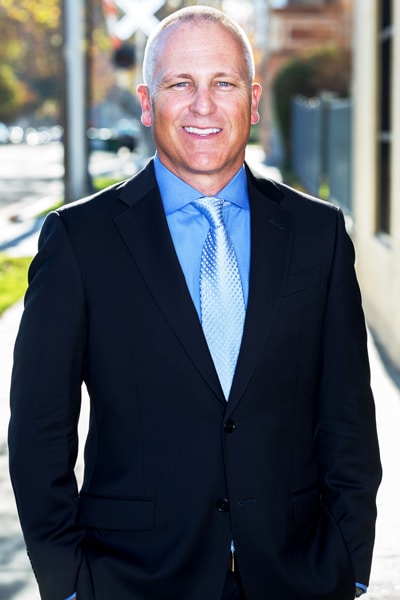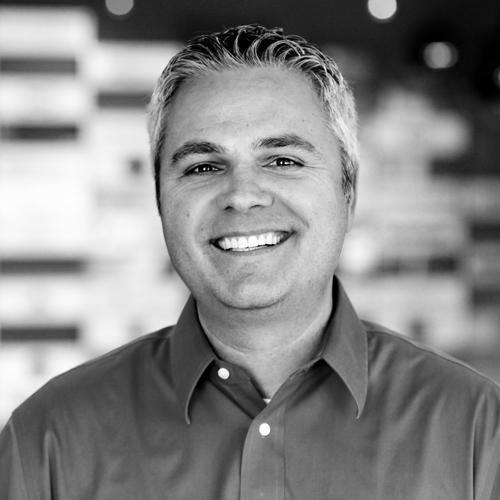
Among lawyers in Silicon Valley, most of the glory goes to the intellectual property (IP) attorneys. Highly complex innovation—devised and patented at breakneck speed—is the coin of the realm. One could even say that the IP counselors are the legal rock stars in tech.
So business attorneys such as Bill Rainey are the producers, promoters, and collaborators that all rock star lawyers need. He’s a cross-functional attorney—the general counsel, senior vice president, and secretary at Intertrust Technologies, a global computing products and services provider. Although he’s managed IP and technology licensing over the years, Rainey primarily manages mergers and acquisitions, employment, litigation management, data privacy, data protection, venture investing, SaaS (software as a service), and commercial transactions. Wearing a second hat in corporate development, Rainey also oversees general and administration activities at the privately held company.
In other words, Rainey knits together the company, the businesses it has acquired, and the people—both internal and external. And he does it across borders, spending a great deal of time in Europe and Asia, quite the distance from the company’s Sunnyvale, California, home.
The firm works in a broad variety of verticals, such as media, healthcare, automotive, home, energy, and financial technology sectors. What it does is service distributed computing environments—which means the Internet of Things and the cloud play a major role in its operations—while ensuring security, privacy, and policy enforcement. Digital Rights Management (DRM) is a core capability at Intertrust, which has led to partnerships with digital entertainment companies across the globe. The company also touches such aspects as DNA data, smart grids, and digital advertising. It also provides encryption and other protections that organizations need to operate.
Rainey’s realm includes a great deal of licensing infrastructure and litigation. He joined Intertrust in 1999 at the time of the company’s initial public offering. He actually had some involvement with the company’s secondary offering in 2000. He was then integral in taking the company private again in 2003 as a joint venture with global titans Philips and Sony and Stephens Inc., an investment bank based in Little Rock, Arkansas.
At its peak in 2001, the small firm was four hundred people strong. That number dropped to thirty-two when the firm undertook Microsoft and eventually succeeded, winning a $440 million settlement in 2004 that revived the then-struggling company’s prospects. Now, the firm is back to about two hundred employees worldwide.
Working with outside counsel, it’s fair to term Rainey as the David against the Goliaths such as Microsoft. Perhaps his earlier experiences in the practice of law prepared him for it.
Rainey began his legal career in 1995 as a civil litigator. In 1997, two years before joining Intertrust, he worked as a deputy public defender in Santa Clara County, California. In that role, he represented indigent clients in misdemeanor and felony jury trials in challenging “three strikes” cases. Working for clients who faced harsh punishments was a tough proving ground for the young lawyer.
“As a public defender, I couldn’t pick my cases,” Rainey says. “I was fighting against crimes that were alleged to have occurred way in the past, and I hate to lose, which happens more often than not as a public defender. I discovered I’m more of a deal guy. I wanted to do more in business transactions and focus on building things for the future. But the trial experience was invaluable.”
That trial experience came in handy about fifteen years later. “We had a patent case go to trial in front of a jury and a tough judge,” Rainey says. “I got very involved in the trial, including the jury selection, witness preparation, and more. I knew then I wouldn’t trade that trial experience for the world.”
The ensuing years, before and after the Microsoft settlement, gave the McGeorge School of Law at University of the Pacific graduate a full résumé. Serving in various roles—chief operating officer, general counsel, corporate secretary, director, and senior vice president of corporate development—with various subsidiaries, Rainey was in the thick of the evolution of digital content and related security issues.
As of late 2016, Innogy SE, a subsidiary of the Germany-based utility company RWE, became one of Intertrust’s major investors. Intertrust is now helping Innogy SE control the property rights on its data. It’s a play in the renewable energy sector, particularly in the distributed energy resources segment of it.
“This definitely feels like a new company,” Rainey says. “We are taking our expertise in DRM and trusted computing to energy, to the Internet of Things, and the automotive industry. Our investors are up for the challenge.”
Rainey explains that most of the acquisitions and partnerships are about bringing together complementary technologies. But among the major challenges in the hyper-competitive northern California region are finding skilled workers in high-performance computing, natural language processing, project management, integration, SQL, and the like. Rainey oversees matters of H-1B visas to help fill seats with highly skilled immigrants. But the company also gains talent through overseas acquisitions, particularly in Estonia and India.
IP attorneys might be rock stars of the Silicon Valley, but it takes a business lawyer to work out everything else. Rainey illustrates how equally important business happens outside the limelight rather than in it.
Photo: Scott Donschikowski

